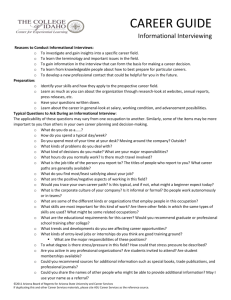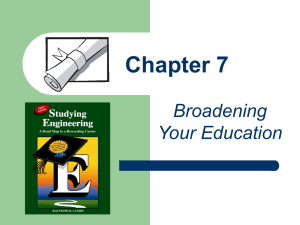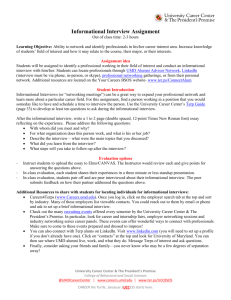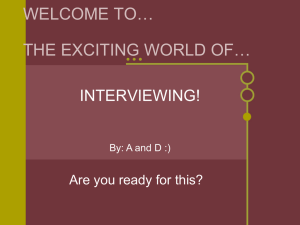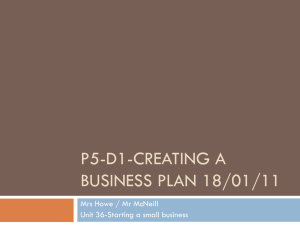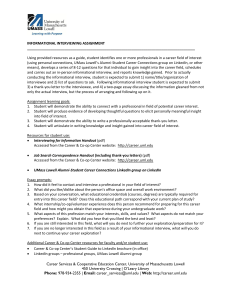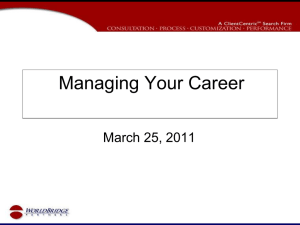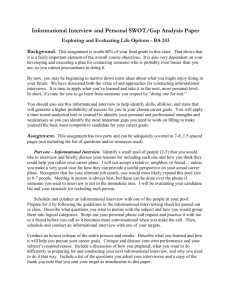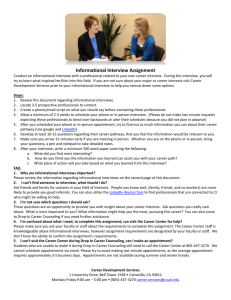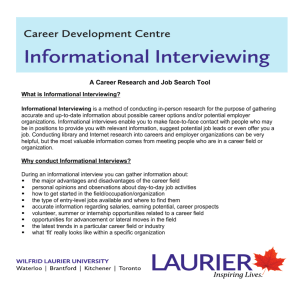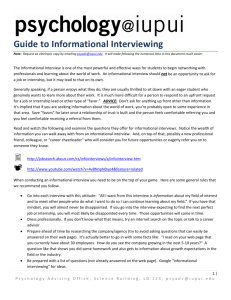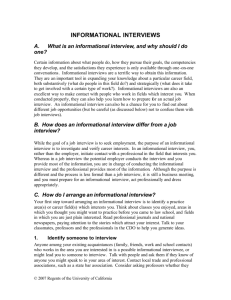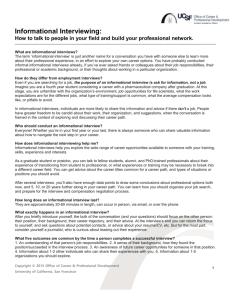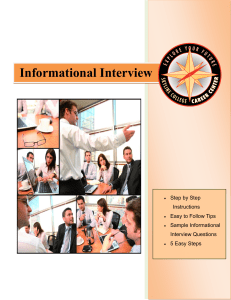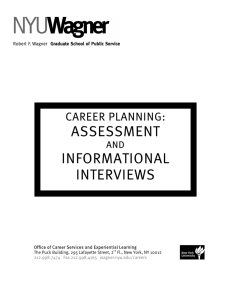The Art of the Informational Interview
advertisement
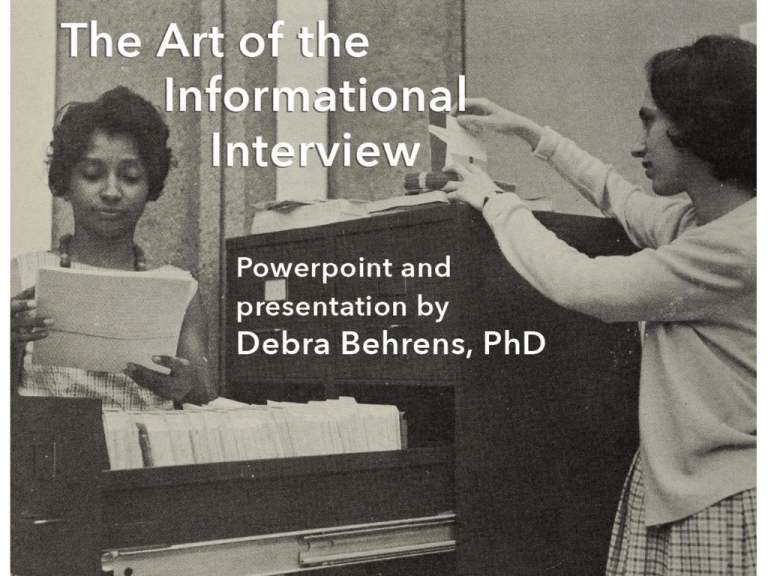
The Art of the Informational Interview Debra Behrens, Ph.D. Topics • • • • • • What is an informational interview? The purpose How to prepare Examples Questions to Ask your interviewee Q&A What is an informational interview? An interview conducted by a prospective job seeker, who interviews a professional to learn about: • • • • a specific job a profession or career field industry organization/company Purpose and Benefits Purpose 1.Exploring a career, job or organization 2.Building your network Benefits Learn more about a field and how you might enter Career decision-making, help clarify your goals Uncover opportunities- related occupations Confirm your current focus Identify strategies for closing gaps in experience, skills Humanities PhD Transferable skills Communication: Writing Public speaking Stakeholder management Web, social media Instruction and Knowledge management Research/Analytical Teaching and training Curriculum development Project skills: Project management Managing budgets Problem solving Organizing scholarly meetings and events Skills Transfer GSI Trainer/HR Lauren PhD French Literature Goal-apply teaching skills in a new career Used the Informational interview to identify gapsexperience, and industry knowledge Contract job via ASTD network ---FT position ASTD.org Getting inside the Organization Alan PhD on job market completed initial company interview Used LinkedIn, found a contact within company, asked for referral Informational Interview- focused on company initiatives, organizational culture Two weeks later - Callback-finalist Where to find contacts Former graduate students Friends, faculty from undergrad institution Company literature or brochures LinkedIn or Facebook Newspaper or magazine articles Faculty contacts Former employers Relatives Friends of parents/parents of friends Happenstance-6 degrees… Mapping the Terrain Locating the professional community, the habitat of people who do the kind of work you want to do Through your colleagues, fellow grad students, alums, you have access to a wealth of contacts and resources There is a wide world of opportunity and people willing to help Platform 9.75 Introducing yourself How you learned of this person (i.e. “my neighbor ” or “my cousin Leo”) Mention any shared connections or interests A brief summary of your current work, your interests, and the kind of information you seek/what you want to do Why you think this person could be helpful A simple request to connect: “If you would be willing to have a conversation (in person or via email/phone/Skype), I would be very grateful.” Request a meeting • Identify the person you wish to interview. • Send an introductory email explaining who you are and your purpose. • If following up on a referral, be sure to name drop • Request a brief meeting/ 20-30 minutes • Write up your interview questions Prepare Conduct initial research on the career or employer for a grasp of the basics. Learn about the career field in general. Why? Decide on a focus, organize your list of questions. You are the interviewer, and this is not a job interview. Keep your purpose in mind. Questions Please describe your current job and career path. What educational background is required in this career? What aspects of your job do you find most satisfying? most challenging? What professional associations do you belong to? More Questions If you wanted to break into your industry, what would you do? How has the field changed within the past___years? What are the current issues and trends in this field? What qualifications do you seek in a new hire? Who else would you recommend I speak with? After the interview Send a thank you email or note. Follow up with the referrals the interviewee provided. Keep track of contact information from informational interviews and follow up. The steps- review Make courteous initial contact Ask for information….NOT a job Face-to-face meetings are preferred ask for only 20-30 minutes Try to obtain several referrals from each person you contact Follow up and keep them informed of your progress Thank them Why bother? 70% of all jobs are filled via Networking. (BLS) An estimated 35% of jobs people get hired for didn’t exist before they were hired Next Steps Questions? Thank you!

